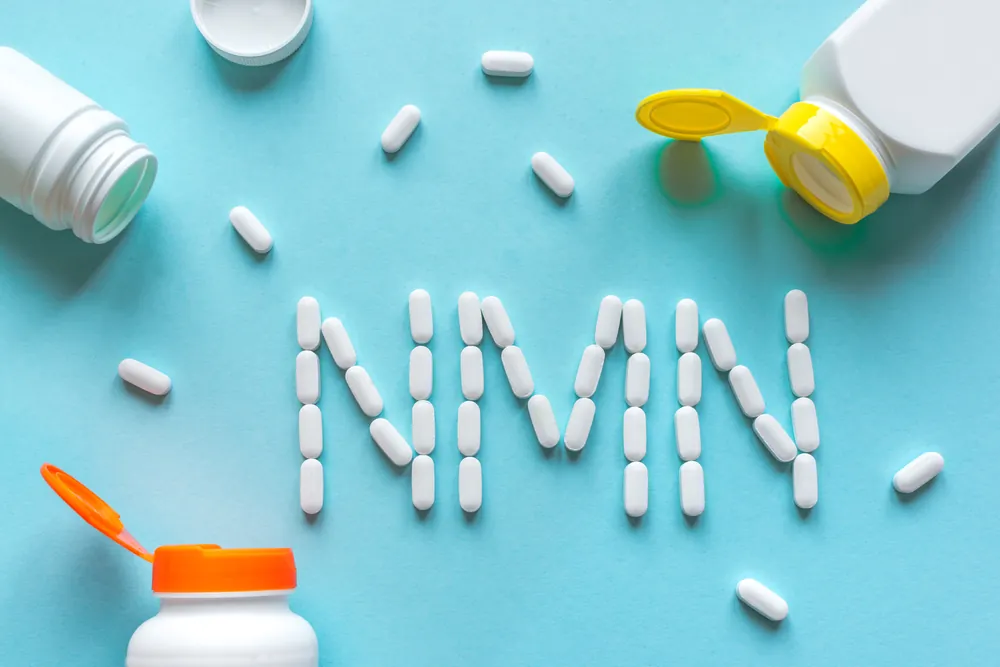NMN Human Trial Suggests Improved Muscle Glucose Metabolism
- NMN trial data suggests clinically relevant results.

In recent years, there has been considerable interest in the naturally occurring molecule and dietary supplement nicotinamide mononucleotide (NMN) and its potential influence on aging. While there have been numerous animal studies suggesting that it may be useful in combating some age-related decline, there has been a lack of human data until now.
In previous mouse studies NMN has been shown to improve metabolism and in particular boosts mitochondrial function, increases cognitive function in aged mice, and improves DNA repair.
NMN human trial results
Researchers at Washington University School of Medicine in St. Louis have published the results of an NMN human trial that suggest clinically relevant results in people given NMN. This is the first randomized clinical trial to examine the effects of NMN administration on human metabolism [1].
This small trial saw 13 women with prediabetes given 250 mg of NMN orally each day for a period of 10 weeks; the remaining 12 participants were given a placebo.
Administration of NMN appeared to improve the ability of insulin to increase glucose uptake in skeletal muscle. This uptake is typically dysfunctional in people experiencing prediabetes, type 2 diabetes, or obesity. Insulin boosts glucose uptake and storage in muscle, and people with insulin resistance have an increased risk of developing Type 2 diabetes.
The researchers also observed that there was an increased expression of genes associated with muscle structure and remodeling in participants given NMN.
The researchers reported that administration of NMN did not appear to reduce blood glucose levels or blood pressure. It also did not appear to have an impact on blood lipid profile, raise insulin sensitivity in the liver, or reduce the presence of fat in the liver. The researchers also reported that treatment with NMN did not decrease the presence of inflammatory biomarkers as it has been known to do in mice.
In rodents, obesity and aging impair nicotinamide adenine dinucleotide (NAD+) biosynthesis, which contributes to metabolic dysfunction. Nicotinamide mononucleotide (NMN) availability is a rate-limiting factor in mammalian NAD+ biosynthesis. We conducted a 10-week, randomized, placebo-controlled, double-blind trial to evaluate the effect of NMN supplementation on metabolic function in postmenopausal women with prediabetes who were overweight or obese. Insulin-stimulated glucose disposal, assessed by using the hyperinsulinemic-euglycemic clamp, and skeletal muscle insulin signaling (phosphorylation of AKT and mTOR) increased after NMN supplementation, but did not change after placebo treatment. NMN supplementation up-regulated the expression of platelet-derived growth factor receptor β and other genes related to muscle remodeling. These results demonstrate NMN increases muscle insulin sensitivity, insulin signaling and remodeling in women with prediabetes who are overweight or obese (ClinicalTrial.gov NCT 03151239).
Conclusion
While the results of this study are interesting, we should remain cautious and avoid jumping on the bandwagon just yet. These are only the initial results of what is a very small human trial, so we encourage patience here. Larger studies are required to ascertain whether NMN has beneficial effects for the prevention or management of prediabetes or diabetes in people.
Meanwhile, if you are interested in learning more about NMN and why it could potentially be important in combating aging, you may wish to dive into our summary of nicotinamide adenine dinucleotide (NAD+).
Literature
[1] Yoshino, M., Yoshino, J., Kayser, B. D., Patti, G. J., Franczyk, M. P., Mills, K. F., … & Klein, S. (2021). Nicotinamide mononucleotide increases muscle insulin sensitivity in prediabetic women. Science, 372(6547), 1224-1229.








